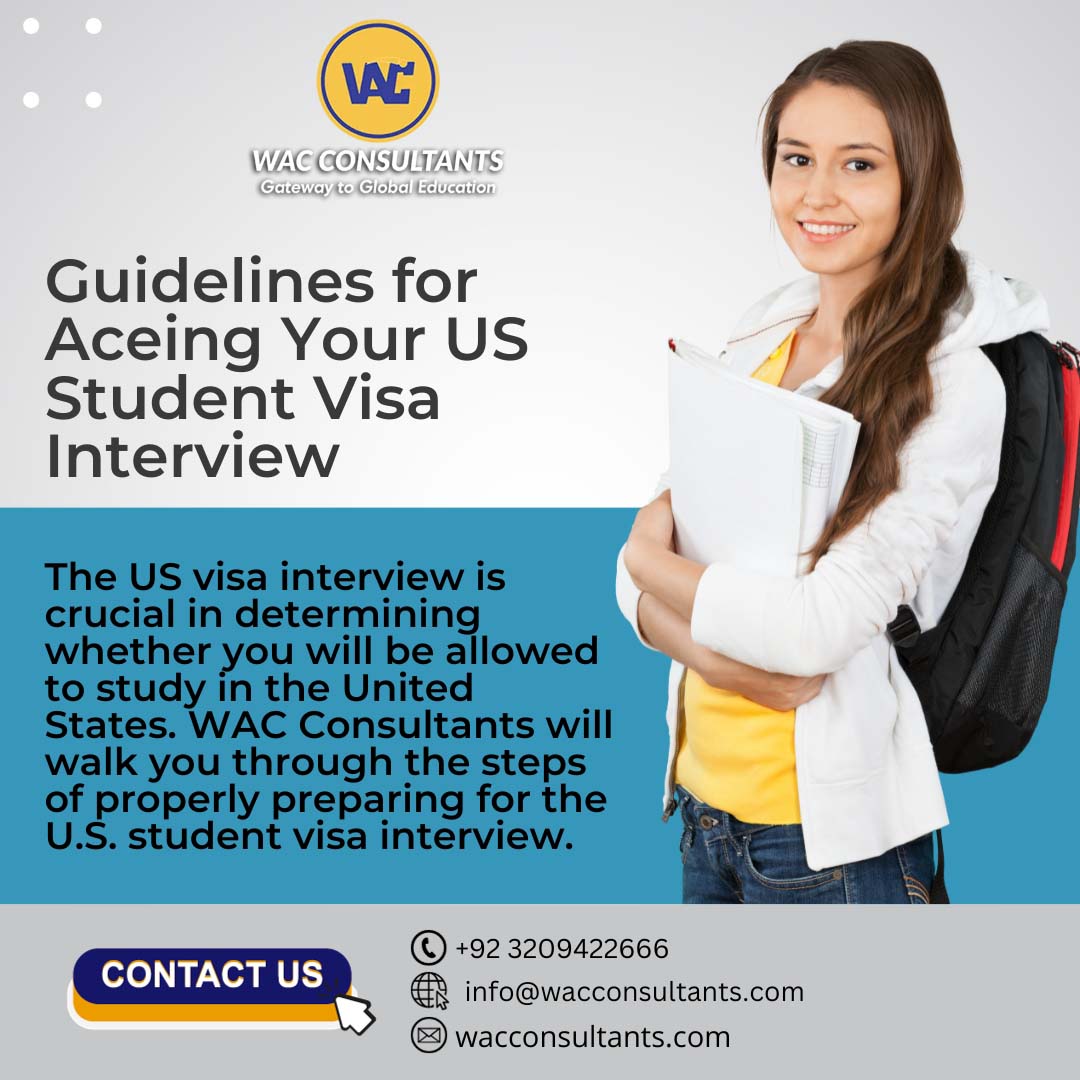Admission to an American educational institution is unquestionably a huge accomplishment, but it is just half the process for international students. The next critical stage is to pass the U.S. student visa interview and this interview is vital in determining whether you will be allowed to study in the United States. WAC Consultants will walk you through the steps of properly preparing for the U.S. student visa interview.
1. Understand the Interview Process:
The major goal of the visa interview is to determine whether you truly plan to study in the United States and whether you have the financial means to support yourself throughout your stay. The interviewer will mainly want to check if you intend to return to your home country after finishing your education and if you are truly a worthy candidate for a US student visa.
2. Gather the Required Documents:
Before the interview, make sure you have the following documents on hand to prevent any discrepancies:
– A valid passport
– DS-160 confirmation page, along with you I-20 form
– Receipt of payment for a Visa application
– Passport-sized photos
– Academic transcripts and diplomas
– Proof of sufficient funds such as scholarships or block account
– Proof of ties to your home country (in this case Pakistan) to show that you plan to return to your country after completing your education in the USA.
3. Brush up on your English:
The US student visa interview will be in English, so while you do not need to be extremely well-versed in the language, you must be able to understand and reply to the interviewer’s queries to some extent. It is recommended to practice your English beforehand by conversing with friends and family, and rehearsing your answers to the prospective interview questions.
4. Common Interview Questions:
US visa interview questions for students will mostly include:
– Why do you plan to study in the United States?
– What is your reason for selecting this particular course and university?
– Why should you return back to your home country after your studies in the US?
– Do you have relatives in the United States?
– Do you have family or property in Pakistan?
– How are you planning to fund your education in the US?
5. Show Ties to Home Country:
It is extremely significant to demonstrate a solid intention to return to your native nation, whether through family, property, or other obligations. The immigration officers’ major concern will be will be to gauge whether the student wishes to return after finishing their studies, and how determined they are in contributing towards the development of their home country.
6. Maintain Transparency:
Provide clear, concise, and well-formed answers to the interviewer’s questions. If you don’t know the answer, it’s better to admit it instead of delivering a false statement. Remember that sincerity is essential and it is natural to be nervous. Keep your demeanour calm and respond confidently to the interviewer as they want to see your intentions and reasons for going to the USA.
In conclusion, the U.S. student visa interview is the most critical stage in visa process, so it is important not to take it lightly. The key to properly navigating this procedure is preparation. Prepare the relevant documents, practise your responses, and approach the interview with confidence. Keep in mind that studying in the United States is an incredible opportunity to immerse yourself in a new environment and widen your horizons, so try your best to remain steadfast and motivated. For more help with your US student visa process, seek assistance from WAC Consultants, the best student visa consultants in Lahore for Pakistani students.
FAQs:
Your interview for a US study visa will most probably last for 3 to 5 minutes. The duration for the interview depends on your personal circumstances and eligibility for the visa.
If your visa application is denied, you can definitely reapply. However, it is critical to understand why the denial was made, and fix your mistakes before applying for a visa interview again.
It is critical to maintain a calm demeanour. Do not panic and instead inform the interviewer that you do not have the answer to their question at this time but would supply it at another instance if given the opportunity.

